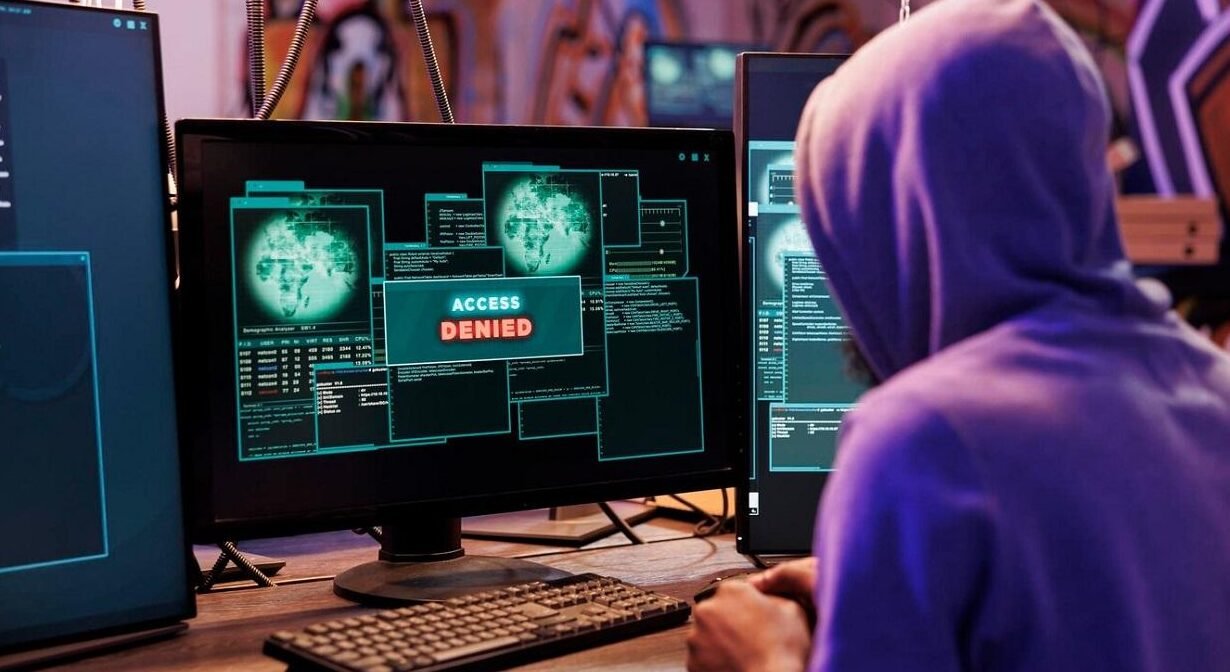In one of the most significant cryptocurrency exchange breaches of 2025, Iran’s largest digital asset platform, Nobitex, fell victim to a sophisticated cyber attack that resulted in the loss of over $90 million in digital assets. The incident, which occurred on June 18, 2025, has sent shockwaves through the cryptocurrency community, highlighting the growing intersection between geopolitical tensions and cybersecurity in the digital asset space.
The attack stands out not only for its substantial financial impact but also for its politically motivated nature, marking a new chapter in cyber warfare where digital assets are used as tools of geopolitical conflict. Unlike typical cryptocurrency heists driven by financial gain, this exploit was executed with clear political intentions, fundamentally altering the landscape of how we perceive crypto exchange security threats.
Scale and Scope of the Attack
The Nobitex exploit ranks among the most significant cryptocurrency exchange breaches in recent history, with blockchain analytics firms confirming that hackers successfully drained funds across multiple blockchain networks. The stolen assets encompassed a diverse portfolio of cryptocurrencies, including Bitcoin, Ethereum, Dogecoin, Ripple, Solana, Tron, and Ton, demonstrating the attackers’ sophisticated understanding of multi-chain operations.
What makes this attack particularly devastating for Iran’s cryptocurrency ecosystem is Nobitex’s dominant market position. According to archived data from the platform’s website, Nobitex serves more than 10 million customers, making it Iran’s primary gateway to cryptocurrency trading and investment. The exchange’s compromise effectively disrupted the digital asset activities of millions of Iranian users who relied on the platform for their cryptocurrency transactions.
The timing of the attack is also significant, occurring during a period of heightened geopolitical tensions between Iran and Israel. This context transforms the incident from a simple cybercrime into a form of digital warfare, where cryptocurrency exchanges become strategic targets in broader conflicts between nations.
Nobitex Exchange Suffers Multi-Chain Political Cyberattack
According to blockchain security experts, the Nobitex exploit began around 6:00 AM Iran Standard Time and involved sophisticated technical methods that revealed the attackers’ advanced capabilities. Security analysts from Cyvers identified that the breach appeared to stem from a critical failure in access controls, allowing attackers to infiltrate internal systems and systematically drain hot wallets across multiple blockchain networks.

The attackers employed a particularly unusual technique involving vanity blockchain addresses that contained anti-IRGC messaging. These customized addresses, primarily used on the TRON network, served both functional and symbolic purposes in the attack. The use of such addresses demonstrates the political motivations behind the hack while also providing a structured method for routing the stolen funds.
The multi-chain nature of the attack required considerable technical expertise, as the hackers successfully navigated different blockchain protocols and their respective security measures. The TRON network bore the brunt of the attack, with approximately $48.65 million in suspicious outflows identified on this blockchain alone. At the same time, the remaining funds were distributed across other networks, including Ethereum and Bitcoin.
Pro-Israeli Hackers Target Iranian Cryptocurrency Exchange
The hack took on an unprecedented political dimension when the pro-Israeli hacking group known as Gonjeshke Darande, which translates to “Predatory Sparrow,” claimed responsibility for the attack. This group has previously targeted Iranian infrastructure, including a recent attack on Bank Sepah, establishing a pattern of cyber operations aimed at Iranian financial institutions.
The group’s announcement of the attack came through their official social media channels, where they framed the operation as a politically motivated strike against Iranian digital infrastructure. Their statement indicated that the attack was part of broader efforts to target what they consider Iranian terrorist activities, positioning the hack within the context of ongoing regional conflicts.
This political motivation fundamentally distinguishes the Nobitex hack from typical cryptocurrency exchange breaches. Rather than seeking personal financial gain, the attackers pursued strategic objectives aligned with geopolitical goals, representing a new evolution in how nation-state-affiliated groups utilize cryptocurrency platforms as targets for asymmetric warfare.
Nobitex Hackers Destroy $90M in Political Protest
Perhaps the most remarkable aspect of the Nobitex exploit is what the attackers did with the stolen cryptocurrency after successfully draining the exchange’s wallets. In an unprecedented move that highlights the political rather than financial motivations behind the attack, the hackers chose to “burn” the majority of the stolen funds by sending them to inaccessible wallet addresses.
This action effectively removed approximately $90 million worth of cryptocurrency from circulation permanently, representing a form of economic warfare rather than traditional theft. Blockchain analysis firm Elliptic confirmed that the attackers deliberately sent the funds to wallets that cannot be accessed, ensuring that the cryptocurrency could never be recovered or used by anyone.
The decision to destroy rather than profit from the stolen assets sends a powerful message about the attackers’ priorities and objectives. It demonstrates that the hack was designed to inflict maximum economic damage on Iran’s cryptocurrency ecosystem rather than to enrich the perpetrators, marking a significant departure from conventional cybercriminal behavior.
Impact on Iran’s Cryptocurrency Market
The Nobitex hack has had far-reaching consequences for Iran’s cryptocurrency market, which has experienced significant growth in recent years, partly due to international sanctions that have limited the country’s access to traditional banking systems. Cryptocurrency exchanges like Nobitex have served as crucial financial infrastructure for Iranian businesses and individuals seeking to engage in international commerce.
The attack has likely shaken confidence in Iranian cryptocurrency platforms, potentially leading to reduced trading volumes and increased scrutiny of exchange security measures. For the millions of Nobitex users affected by the breach, the incident raises serious questions about the safety of their digital assets and the reliability of domestic cryptocurrency infrastructure.
The timing of the attack is particularly daunting, given Iran’s increasing reliance on cryptocurrency as a means of circumventing international sanctions. The country has been exploring various blockchain-based solutions to maintain global trade relationships, making the security of its cryptocurrency infrastructure a matter of national economic security.
Security Implications for the Crypto Industry

The Nobitex exploit reveals several critical vulnerabilities that extend beyond the Iranian cryptocurrency market to the global digital asset ecosystem. The attackers’ ability to compromise internal access controls and drain hot wallets across multiple blockchain networks highlights fundamental security challenges facing cryptocurrency exchanges worldwide.
The incident underscores the importance of robust security measures, including multi-signature wallet implementations, regular security audits, and comprehensive access control systems. The fact that the attackers could operate across multiple blockchain networks simultaneously suggests that many exchanges may be vulnerable to similar sophisticated attacks.
For the broader cryptocurrency industry, the Nobitex hack serves as a wake-up call about the evolving nature of threats facing digital asset platforms. The political motivation behind the attack introduces new risk factors that exchanges must consider when developing their security strategies, particularly those operating in geopolitically sensitive regions.
Geopolitical Ramifications and Future Implications
The Nobitex hack represents a significant escalation in the use of cyber warfare tactics targeting cryptocurrency infrastructure. By successfully executing a politically motivated attack on Iran’s largest digital asset exchange, the perpetrators have demonstrated how cryptocurrency platforms can become strategic targets in broader geopolitical conflicts.
This incident sets a concerning precedent for the cryptocurrency industry, suggesting that exchanges may increasingly become targets for nation-state-affiliated groups pursuing political objectives rather than financial gain. The successful nature of the attack may encourage similar operations against cryptocurrency infrastructure in other countries experiencing geopolitical tensions.
The international community’s response to such attacks will likely shape the future regulatory landscape for cryptocurrency exchanges. Governments may implement stricter security requirements for digital asset platforms, particularly those operating in regions with active geopolitical conflicts, which could potentially impact the development of the global cryptocurrency market.
Lessons Learned and Moving Forward
The Nobitex exploit offers several important lessons for cryptocurrency exchanges, regulators, and users worldwide. The incident underscores the crucial importance of implementing comprehensive security measures that extend beyond traditional cybersecurity approaches to address politically motivated threats.
For cryptocurrency exchanges, the hack underscores the importance of robust internal security controls, regular security assessments, and incident response planning that considers both financial and political motivations for attacks. The multi-chain nature of the exploit also demonstrates the importance of implementing consistent security measures across all supported blockchain networks.
Regulators and policymakers must consider how geopolitical factors affect cryptocurrency exchange security and develop frameworks that address the unique risks posed by politically motivated attacks. This may include international cooperation mechanisms for responding to cross-border cyber attacks targeting cryptocurrency infrastructure.
Conclusion
The $90 million Nobitex exploit marks a watershed moment in cryptocurrency security, demonstrating how geopolitical tensions can manifest in sophisticated cyber attacks against digital asset infrastructure. The incident’s political motivations, technical sophistication, and ultimate destruction of stolen funds represent a new category of threats that the cryptocurrency industry must prepare to address.
As the investigation into the attack continues and the cryptocurrency industry grapples with its implications, Nobitex may be remembered as a pivotal moment that compelled exchanges worldwide to reconsider their security approaches. Threat assessments serve as a stark reminder that in an increasingly connected world, cryptocurrency platforms operate at the intersection of technology, finance, and geopolitics, requiring security measures that address all three dimensions.


